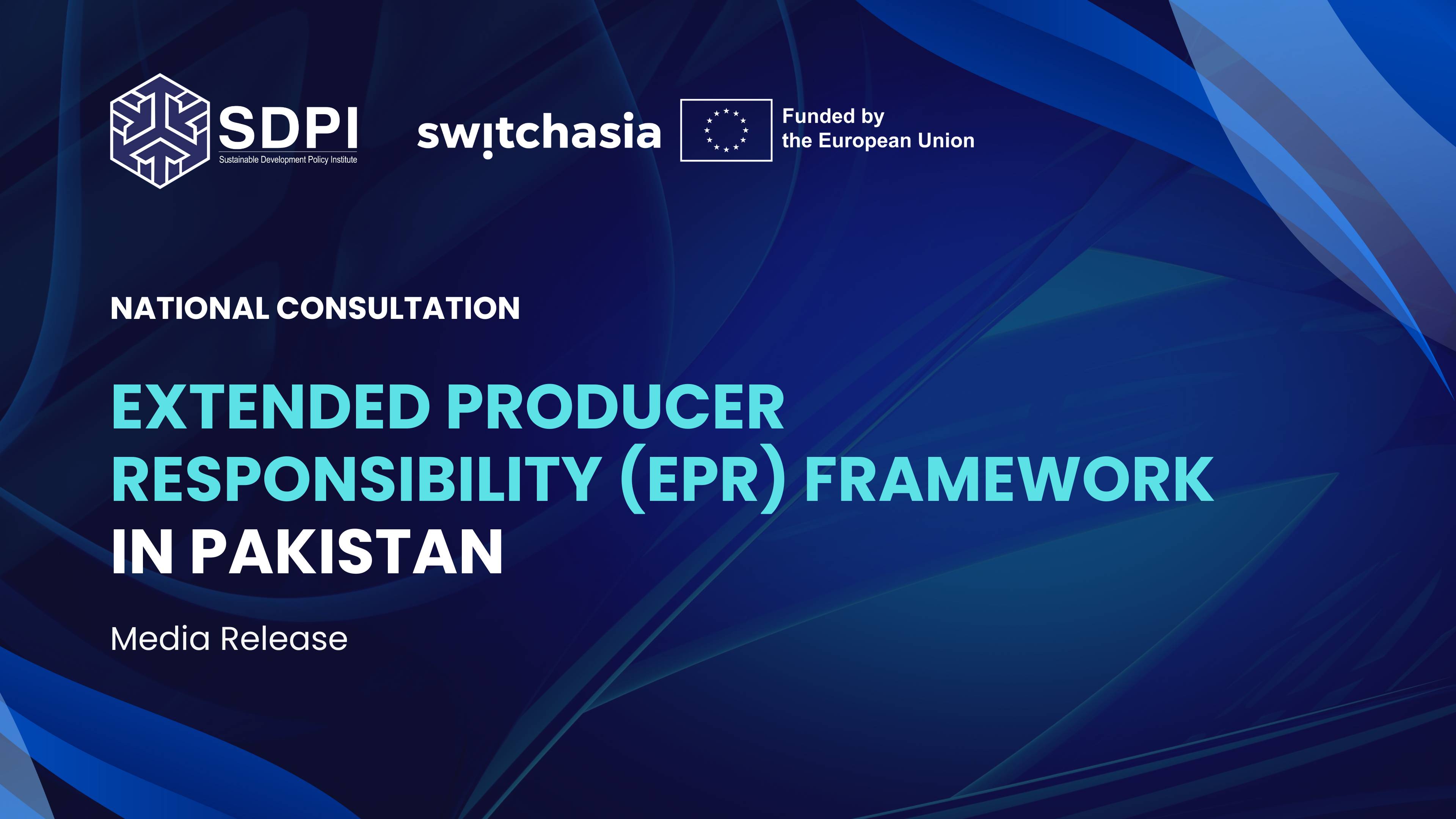
On 2 May 2025, Pakistan took a critical step toward advancing a circular economy by hosting a multi-stakeholder National Consultation Workshop on Extended Producer Responsibility (EPR). Organized jointly by the EU SWITCH-Asia Policy Support Component (PSC) and the Sustainable Development Policy Institute (SDPI), the online consultation brought together policymakers, producers, recyclers, and development partners to discuss the enabling factors for a successful EPR framework in Pakistan.
Extended Producer Responsibility (EPR) is a policy instrument that holds producers accountable for their products’ end-of-life impacts. Beyond improving waste management and reducing environmental harm, EPR has the potential to drive innovation in product design, promote recycling, and foster green economic activity with reduced social and ecological costs.
Speaking at the consultation, Ms. Romina Khurshid Alam, Prime Minister’s Coordinator for Climate Change and Environmental Coordination, highlighted EPR as a pathway to economic diversification, foreign investment, and green job creation. She noted its role in reducing reliance on imported materials such as plastics.
Dr. Zinaida Fadeeva, Team Leader of the SWITCH-Asia PSC, stressed the need to align EPR systems with broader circular economy principles, ensuring coherence with international sustainability standards.
Dr. Abid Qaiyum Suleri, Executive Director of SDPI, framed the discussion within the context of global trade, pointing to the urgency for Pakistani producers to prepare for evolving international regulations, including the EU’s Carbon Border Adjustment Mechanism (CBAM). He also emphasized the importance of integrating the informal sector, currently central to Pakistan’s waste management, into formal EPR systems.
The workshop identified key enablers to advance Pakistan’s EPR policy:
- Clear institutional arrangements: Strong governance, harmonised legislation, and cross-agency coordination are essential.
- Robust legal frameworks: Fast-tracking EPR legislation, enforcing regulations, and mandating eco-design standards are crucial steps.
- Inclusion of the informal sector: Recognizing and integrating waste collectors and recyclers into formal systems improves efficiency and safety.
- Infrastructure and technology: Investments in advanced recycling and waste management technologies by the private sector are needed.
- Public participation: Expanding community initiatives such as waste banks and source separation campaigns can boost material recovery.
- Pilot projects and partnerships: Collaborative efforts among brands, public agencies, and international organizations can serve as testbeds for scalable EPR models.
The consultation is part of the EU SWITCH-Asia PSC’s ongoing technical advisory project titled “Identifying Enablers for Effective Extended Producer Responsibility in Asia Pacific: Drawing Lessons from Developed and Developing Countries in the EU and Asia.” The project supports Pakistan alongside Kazakhstan, Malaysia, the Philippines, and Thailand in shaping policies inspired by over 30 years of EPR experience in Europe.
National Media Coverage
- The News International, Islamabad, May 8, 2025
- LEAD Pakistan, Islamabad, May 7, 2025
- The Nation, Islamabad, May 7, 2025
- Associated Press of Pakistan, Islamabad, May 6, 2025
- Sabah News, Islamabad, May 6, 2025
- Daily Islamabad Post, Islamabad, May 6, 2025
- UrduPoint, Islamabad, May 6, 2025


